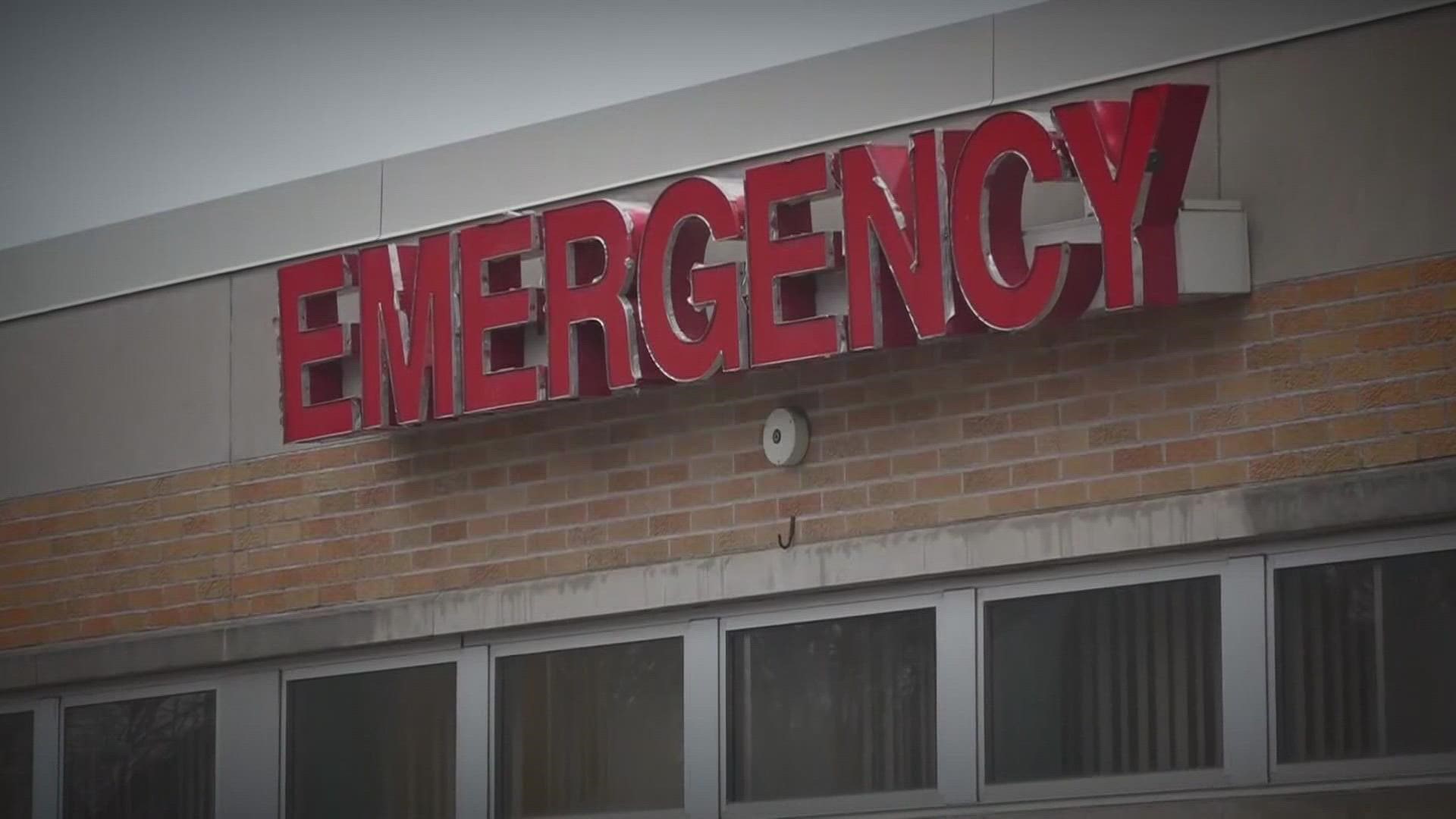MAINE, Maine — It's a ruling that is could lead to rebuilding a system of services for Maine's most vulnerable kids.
The U.S. Justice Department announced this week that the state of Maine is in violation of federal disability law for systematically institutionalizing children with disabilities, instead of providing community-based programs.
But some parents of children with special needs have said that fixing a "broken system" will take years, as their kids continue to regress waiting for critical services.
"Maine must make changes to its service system so that children can get the services that they need, it's no small thing," Atlee Riley, the legal director for Disability Rights Maine, said.
Acting on a complaint filed by the nonprofit advocacy organization, an investigation by the Justice Department found that Maine violated the Americans with Disabilities Act by not making community-based services available to children.
Natasha Suleiman's son Luke is on the autism spectrum. He spent years waiting for in-home specialized services to help him live independently. Meanwhile, skills that took years to learn have regressed.
"The behaviors become unbearable and destructive. It's not just destructive for the child but for the entire family," Suleiman said.
The behavior resulted in the 16-year-old being admitted to Spring Harbor Hospital in January, which provides behavioral health services. Since March, Luke has been waiting for a bed in a residential facility.
"They can't be discharged until they go to the next appropriate setting, but they don't have the staff so your kid just stays in the hospital," Suleiman said.
The feds also identified a number of barriers that prevent kids from getting help. Besides lengthy waitlists, a lack of providers and crisis support services forces a growing number of children in crisis into emergency rooms. While the ruling validated concerns Natasha and hundreds of parents have voiced for years, she is skeptical.
"Until somebody at the very top says it's broken and we need to fix it now, it's not going to change," Suleiman said.
Maine had been put on notice it needs to fix its violations or face a possible lawsuit from the Justice Department, but major changes to a critical system of care could take years.
The Maine Department of Health and Human Services released the following statement to NEWS CENTER, Maine:
The Maine Department of Health and Human Services shares the goal of improving behavioral health services for Maine children in their homes and communities. That’s why we have fully cooperated with this investigation into the shortcomings of Maine’s behavioral health system – shortcomings that date back decades. The Administration has worked over the past three and a half years to rebuild a system of services that was dismantled during the previous administration, dedicating new funding to strengthen behavioral health in every budget and re-establishing the Children’s Cabinet as an avenue to address pressing needs.
Unfortunately, the pandemic, along with its resulting challenges, from providers’ inability to hire and retain qualified staff to a greater need for behavioral health services due to anxiety and isolation caused by COVID-19, set back the progress the Department hoped to make and more work remains. We share the strong sense of urgency in ensuring that Maine children with disabilities have timely access to an array of high-quality, evidence-based services that prevent institutionalization whenever possible – and will continue to work diligently towards that end.
That work is underway. The Department has taken numerous actions and is pursuing new initiatives to strengthen Maine’s behavioral health system. This includes, but is not limited to, expediting more than $12.1 million in state funding to providers to strengthen services to help keep people out of inpatient settings for behavioral health crises, such as assertive community treatment for those with serious and persistent mental illness, targeted case management, home- and community treatment programs, and outpatient therapy for children and adults.
These payments, to be made today, are designed to offset pandemic-related losses, reduce the use of hospital emergency departments for behavioral health crises, meet increased demand due to the long-term mental health effects of the pandemic, and stabilize and hopefully reduce wait lists for services. These one-time pandemic-related payments are part of the Governor’s historic investment in Maine’s behavioral health system.
As passed by the Legislature, the Governor’s supplemental budget and the biennial budget, along with the Home- and Community-Based Services Plan’s bonus payments for workers funded by the American Rescue Plan, invest $230 million in state fiscal years 2022 and 2023 in behavioral health to support the workforce, capacity, and resilience of providers as well as sustainable MaineCare rates into the future.
Fundamentally, the Administration believes that Maine children with disabilities or behavioral health needs should have timely access to high-quality services in their communities in order to prevent unnecessary institutionalization, and the Department welcomes the opportunity to engage with the Department of Justice and other stakeholders to improve the children’s behavioral health system in Maine.

